Coach makes ambitious F&B push into Asia with 20 outlets as appetite for retail dining grows
The American label joins other luxury names that have opened eateries in Singapore
WHEN the New York-based fashion house Coach debuted its eponymous cafe in Singapore in 2023, it was a first in more ways than one. It was the label’s maiden foray into the food and beverage (F&B) business, in tandem with the growing trend of luxury fashion labels offering stylish dining options as a way to draw more customers into their stores in the post-pandemic era.
The success of the Singapore eatery (which closed and was rebranded as Coach Bar earlier this year) led the brand to open its first (renamed The Coach Coffee Shop) in Jakarta in March 2024, as well as a full service restaurant. It was followed by a dizzying opening spree that saw it set up coffee shops in Malaysia, China, Taiwan, South Korea and Singapore.
By the time its third eatery in Singapore is ready this month – a New York-style steakhouse concept similar to its Jakarta restaurant – it will have opened 20 F&B outlets in Asia in less than two years, compared with just four in the US.
Unlike most fashion brands which see F&B as a way to “elevate brand perception”, Coach’s strategy is “to quickly become the leading fashion brand in food and beverage”, says Marcus Sanders, vice-president, Global Food & Beverage, in an exclusive e-mail interview with The Business Times.
Growing South-east Asian market and Gen Z appeal
“We’re seeing a major shift in how people want to experience brands and independent restaurants as well, especially post-pandemic,” explains Sanders. “After years of closures, consumers expect more than just a product when they go out; they want an experience. Asia led the way in this transformation, giving us early insight into where global trends are heading.”
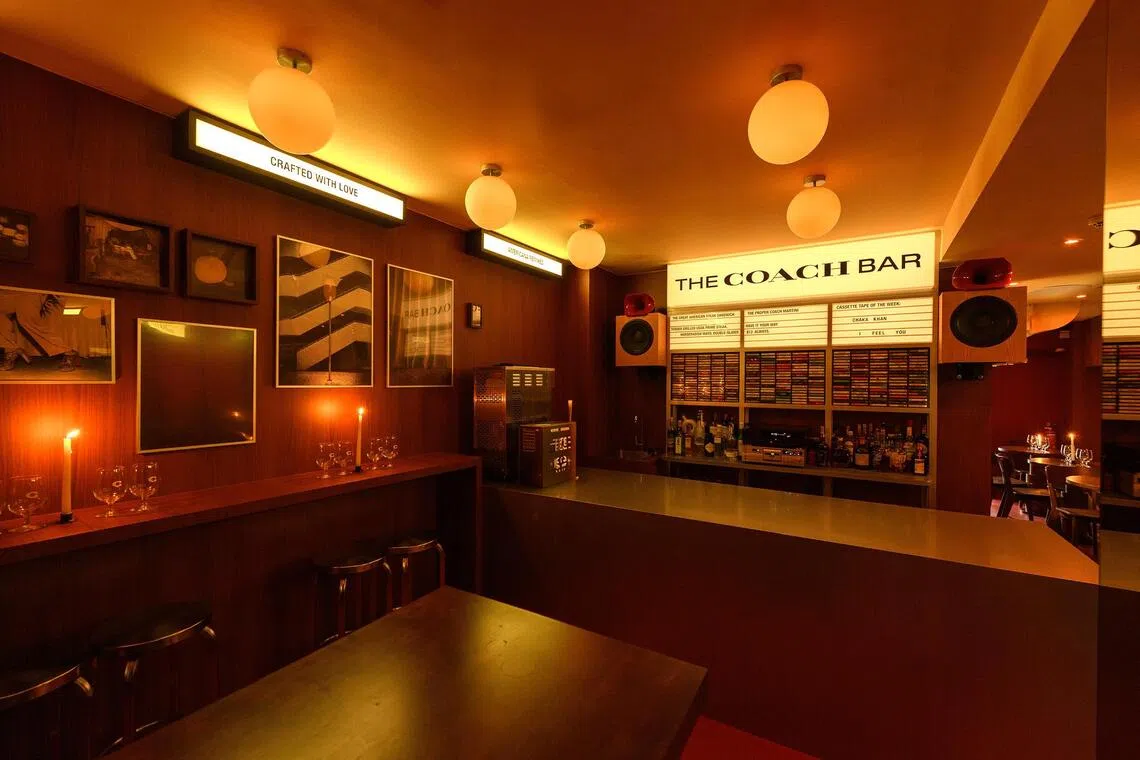
Coach skews towards a younger audience, namely Gen Z, and the focus is on aligning with their desire for “in-person experiences” – which is where food and drink play an important role, notes Sanders. The dining spaces give them a chance to “connect with friends, family and our brand in a way that feels personal and memorable”.
Navigate Asia in
a new global order
Get the insights delivered to your inbox.
Naturally, the brand’s eye is on Asia, as Sanders sees “huge growth” especially in South-east Asia.
Its first entry into Jakarta last year was “a great testing ground due to Indonesia’s ultra-high-net-worth individuals, fast-growing middle class and many Gen Z shoppers”. The success there spurred the brand to open in Malaysia, which now has two coffee shops in Kuala Lumpur and one in Ipoh.

It also sees huge potential in Japan and South Korea. “We are seeing cross-pollination throughout Asia-Pacific. For example, we see quite a few Japanese consumers at our coffee shop at APW in Kuala Lumpur (a lifestyle space in Bangsar), while Chinese customers from our Shanghai, Wuhan and Dalian shops are visiting us at Weave in Resorts World Sentosa.” Coach also has coffee shops in Tokyo and Kisarazu in Japan, Taipei, and Busan in South Korea.
Singapore serves as Coach’s key hub for innovation as it is home to all three of Coach’s culinary concepts – the Coach Coffee Shop, Coach Bar and Coach Restaurant – the latter of which is set to open at the end of this month in Jewel Changi Airport.
Revenue versus marketing
Revenue-wise, “Coach F&B is surpassing both targets and expectations,” says Sanders, without giving exact numbers. And it has also achieved the goal of boosting retail sales as well. “Our coffee shops have sparked stronger foot traffic and longer dwell times at stores, encouraging customers to both dine and buy. In Coach locations that have a coffee shop, we’ve seen retail sales increase by double and triple digits.”
The coffee shops also offer a lower barrier of entry, allowing the brand to engage customers, especially teens, at a friendlier price point than the actual merchandise. “They may not have the budget for a handbag at the moment, but there’s an opportunity for them to be future shoppers. Plus you can afford coffee more often, and we’re happy to see our customers more often as well.”
Sanders is unperturbed by the challenging F&B industry in Singapore and is banking on Jewel’s iconic location as a draw for both tourists and locals. “Even though many restaurants are closing, many are opening as well,” he says. Going forward, the brand is pushing ahead with its F&B strategy “and anticipate strong growth in both Asian and Western markets – we are looking to open up to 15 coffee shops globally in the next year”.
How other brands are doing
Unlike Coach, which is developing F&B as a business in its own right, luxury brands in Singapore – such as Prada, Audemars Piguet and Audi, along with South Korean marque Hyundai – see it as part of a broader lifestyle experience. With South-east Asia firmly in their sights, Singapore is seen as the entry point to the region, and the logical place to test their F&B concepts.
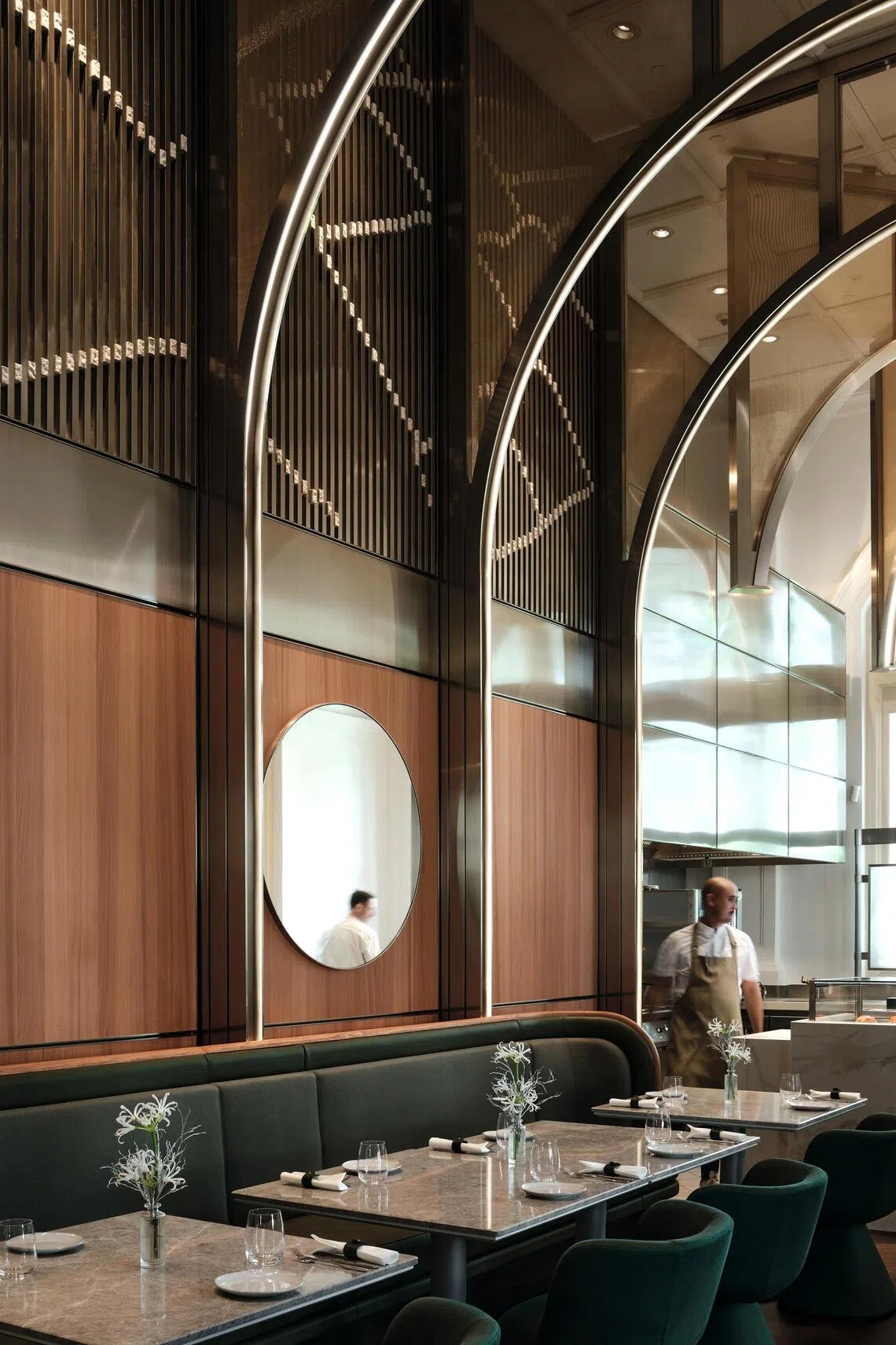
It’s for this reason that high-end watch brand Audemars Piguet chose the city-state to open its world-first AP Cafe in December 2024 as part of its new AP House in Raffles Hotel Singapore. A collaboration with local F&B operator Burnt Ends, the 12-seater cafe with extra alfresco seating made a big splash in the market, as both watch fans and curious foodies flocked to the Instagram-worthy space to sample chicken rice club sandwiches and hazelnut crunch desserts.

As with other brands, the objective is to draw in potential customers who might be too intimidated to enter a sales-oriented environment, and introduce them to the brand, according to AP. The cafe leads to the main “house” – an exclusive living room space for clients and visitors to browse through watches while enjoying champagne or cocktails at a full-sized bar.
The brand also notes that while the cafe attracted overwhelming interest when it first opened, “the flow has since stabilised”, while stressing that the ultimate aim remains to “be part of a broader experience that prioritises emotional connection over transactions”.
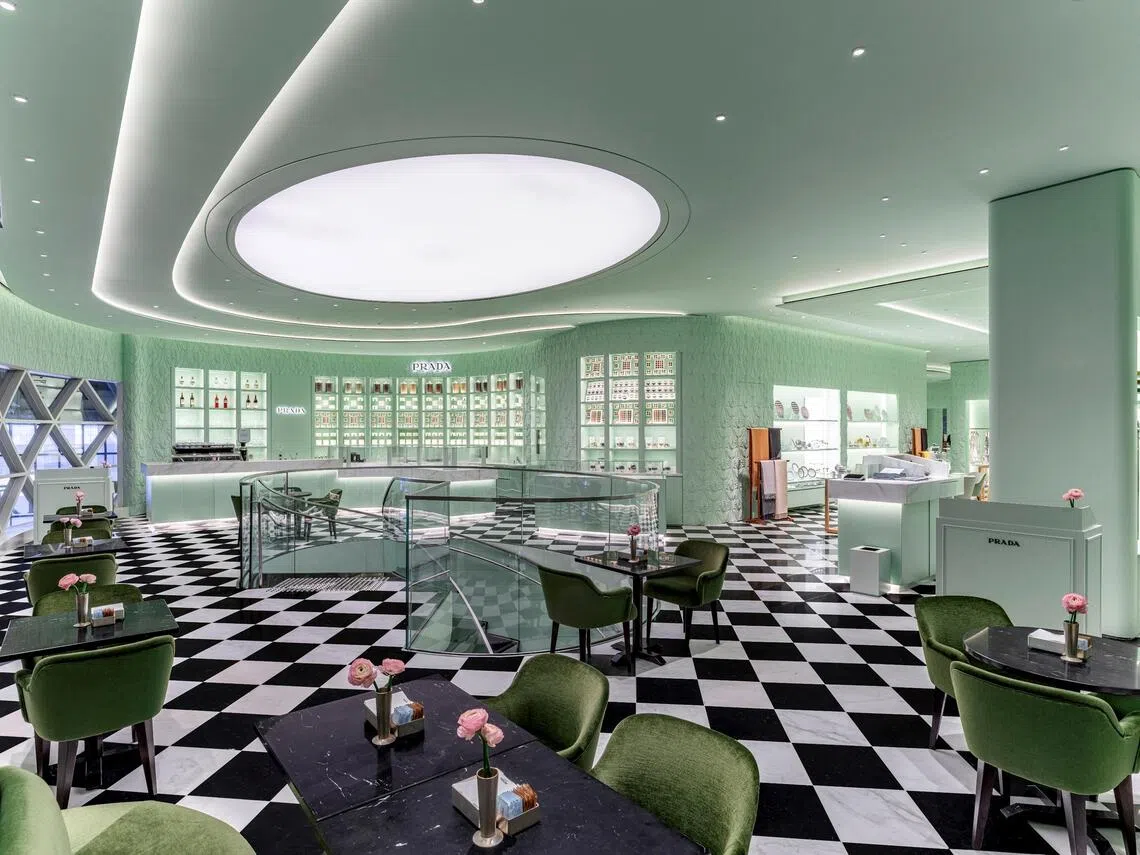
Fashion house brand Prada, meanwhile, has seen its first Prada Caffe in South-east Asia turn into a chi-chi destination for the stylish crowd and serious foodies, thanks to its affiliation with Marchesi 1824 – a storied pastry shop in Milan that is also owned by the brand. The strong line-up of offerings include its signature panettone and cakes, as well as afternoon tea sets and an all-day-dining menu. It even introduced its own line of mooncakes for the mid-autumn festival.
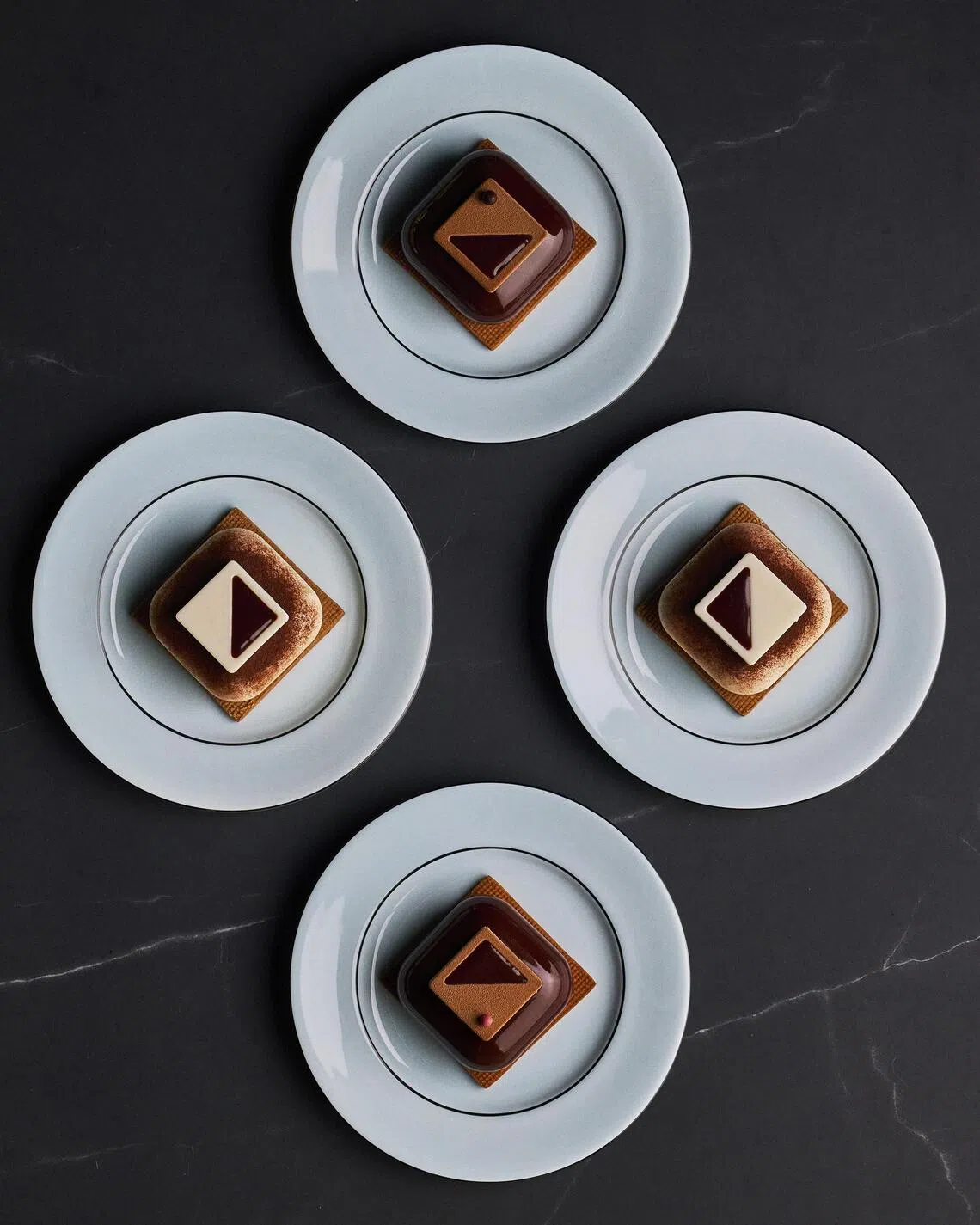
The brand declines to comment on the financial aspect, but it is understood that with its above-average pricing and popularity, the returns have been healthy. As the first F&B concept in Asia, it is seeing plenty of tourist traffic from the region and as far as the Middle East, says a spokesperson. An ever-changing menu also means it attracts local regulars, while festive food gifting is also another revenue source.
Cars and food
Motoring brands such as Audi and Hyundai have also embraced F&B, with the former installing a Burnt Ends Bakery and bar in its Cross Street showroom in yet another collaboration with the brand. Its founder, Dave Pynt, has also been a popular choice for brands looking for a chef-restaurateur to conceptualise and operate its outlets. Besides Audi and AP House, Pynt is also working on white label projects with fashion houses – where he designs and runs outlets according to their identity rather than his own.
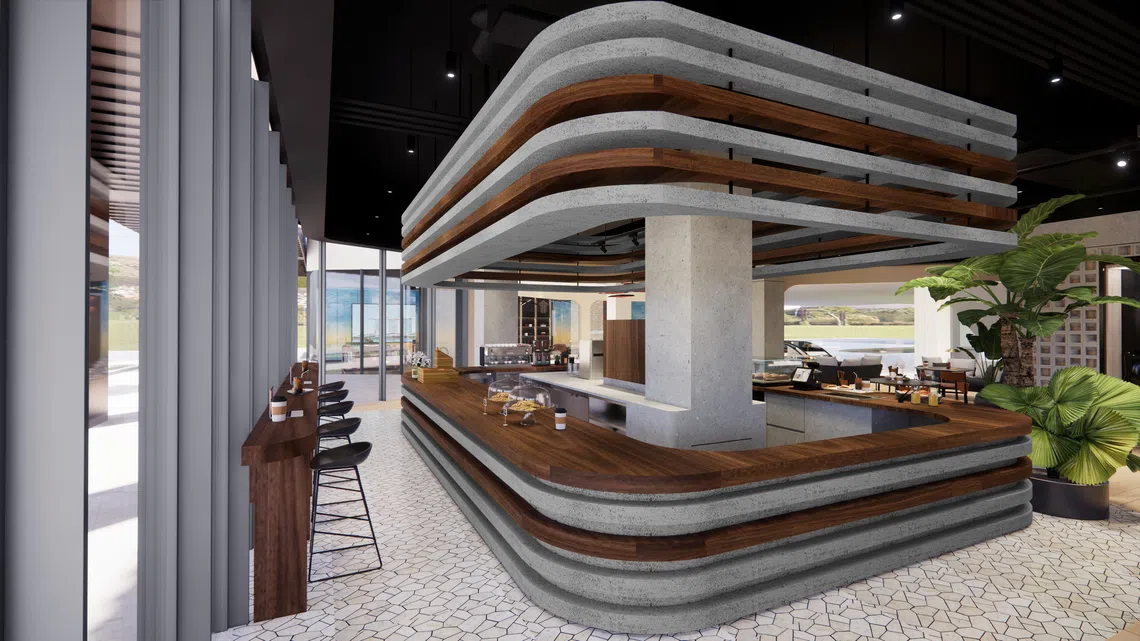
Audi engaged Burnt Ends Bakery to run its F&B operations to leverage the latter’s expertise and to “expand Audi’s association beyond the automotive sector”, says Martin Bayer, managing director of Audi Singapore.
The response has been healthy, he adds. “Feedback and sentiment have been consistent with our aim to create a holistic, multifaceted space that offers something unique for every visitor – whether they be existing Audi lovers, or the general public.”
While Audi was one of the first car brands to collaborate with an established F&B brand, Hyundai Motor Company put in a formidable investment to create a full-service restaurant in collaboration with a three Michelin-starred chef to create a uniquely Korean dining experience in its HMGICS innovation centre in Jurong.
Despite initial scepticism, its restaurant Na Oh – which opened in June 2024 with American-Korean chef Corey Lee as consultant – has become a dining destination in its own right, with reservations among the hardest to get in the city.
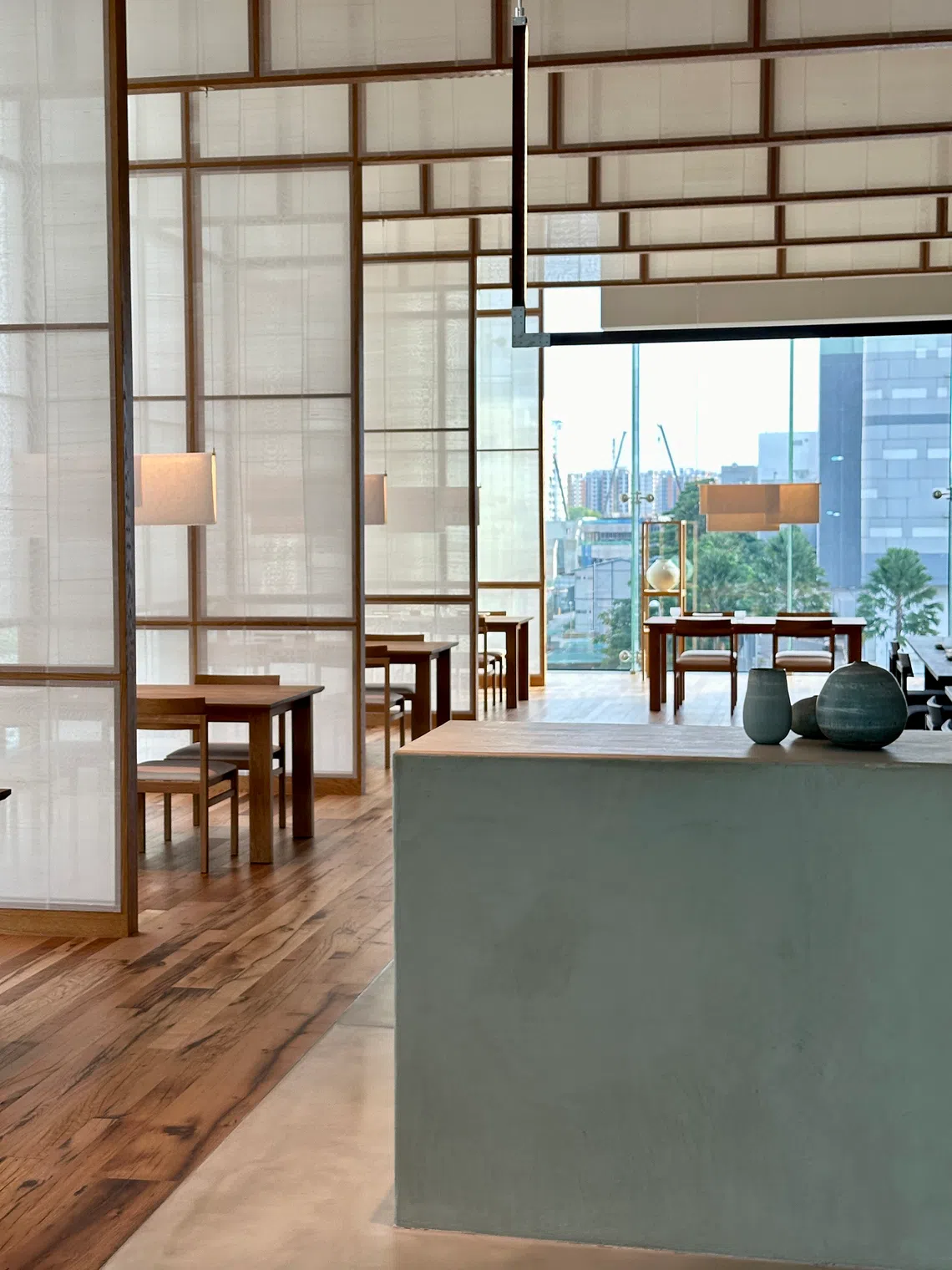
As the group’s first restaurant in the world, Hyundai was “uncertain how non-Korean diners in Singapore would respond to a more authentic and nuanced expression of Korean cuisine than what is typically found locally”, says Nigel Yong, HMGICS’ public relations manager. The concept revolves around a reasonably priced S$78 set menu, using freshly harvested vegetables from the centre’s in-house hi-tech farm.
The distance from the city centre was also seen as daunting, but it has become “part of the experience”, adds Yong. “Its critical acclaim, consistent full bookings and nominations for dining awards have cemented its status as a self-sufficient restaurant that attracts diners for the experience itself, not just Hyundai’s association.”
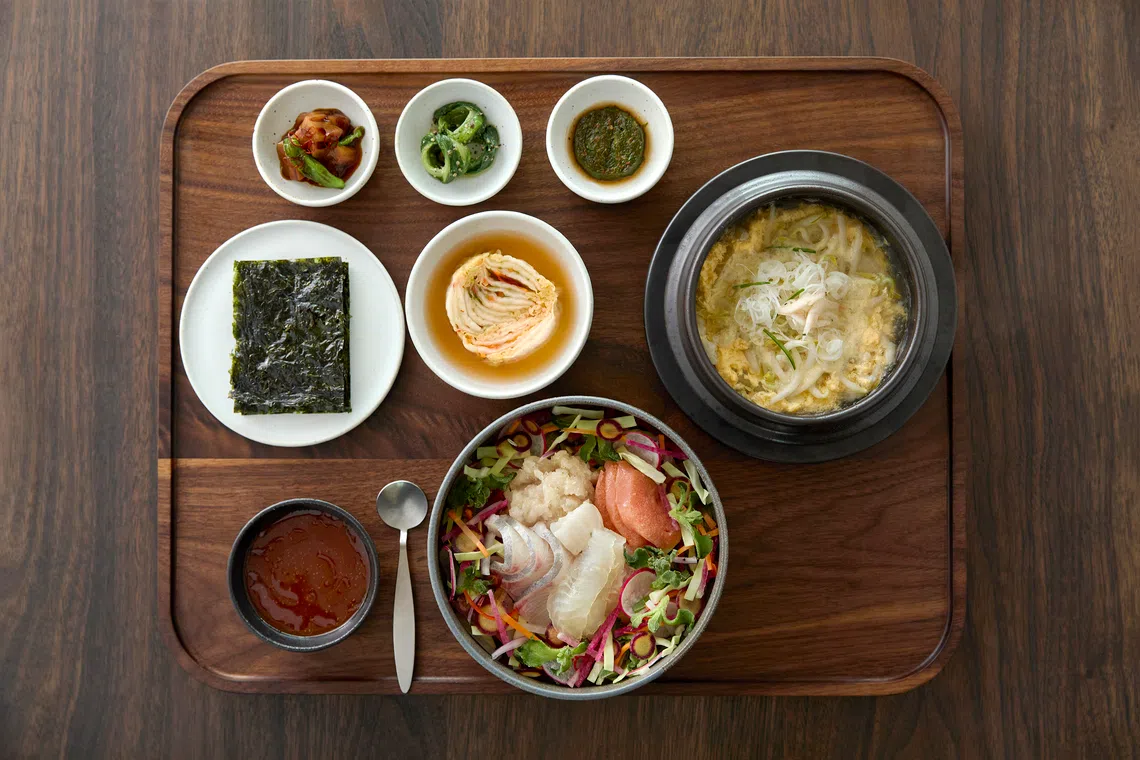
Even so, given its scale, pricing and the level of cooking it strives for, industry pundits note that it would be difficult for any independent restaurant such as Na Oh to be sustainable without Hyundai’s resources.
But Na Oh’s “ambitions go beyond commercial success”, says Yong, echoing a familiar refrain by brands. “It serves as a hospitality and cultural platform, and to make world-class Korean food accessible and memorable while enhancing the visitor journey at HMGICS.”
Decoding Asia newsletter: your guide to navigating Asia in a new global order. Sign up here to get Decoding Asia newsletter. Delivered to your inbox. Free.
Copyright SPH Media. All rights reserved.




